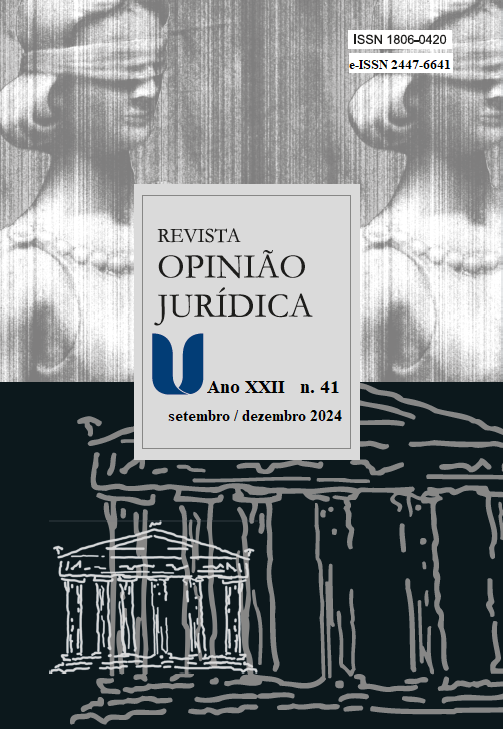Desire-rights
the new frontier of law
DOI:
https://doi.org/10.12662/2447-6641oj.v22i41.p147-175.2024Keywords:
human being, freedom, will, desire-rightsAbstract
Objective: in a liquid society, only the individual maintains a certain consistency. His desiring will seems to be the only significant subsistent reality. This reality is none other than what he says about himself. Individual autonomy generates a new basis for political legitimacy, including the generation of “new” rights through the law. Without a natural order, that is, without a pre-existing reality that gives scope and measure to our actions, freedom identifies itself as the mere absence of obligations or bonds, remains undetermined, lacks an external meaning as a “term” for itself and, therefore, is indistinguishable from the will that moves it. Freedom and will begin to merge and, thus, this new existential framework offers a new frontier for law in capturing real human juridicity, while at the same time raising the discussion about the legitimacy of desire-rights as a source of this same human juridicity and the tensions generated within the common good.
Methodology: the study of the proposed theme challenges the use of the realistic-phenomenological-hermeneutic methodology, in an effort to understand the natural human juridicity – which is not a creation of society or power, but derives from the very condition of being human – and, thus, to shed clearer and deeper light on the analysis of the phenomenon of desire-rights.
Results: we hope to produce, select and systematize basic bibliographical references, indicate analytical and interpretative potentialities to researchers of the theme of desire-rights who are concerned with an academic training focused on concrete justice, in order to expand, through this research, the theoretical collection that configures the frontiers of this important area of studies in the field of right, based on solid, critical, classical and updated theoretical foundations.
Contributions: based on a legal-philosophical investigation into the notions of human being, freedom, will, right and law, as well as their expressions and identities, our research aims to recover the state of the art of real human juridicity, a reality resulting from the nomophoric quality of man, and, as an effect, seek to demonstrate that merging juridicity with voluntaristic legality, the premise of desire-rights, causes a series of tensions and disruptions in respect for the principle of human dignity.
Downloads
Published
How to Cite
Issue
Section
License
Copyright (c) 2024 Revista Opinião Jurídica (Fortaleza)

This work is licensed under a Creative Commons Attribution-NonCommercial-ShareAlike 4.0 International License.
CESSION OF COPYRIGHTS
The submission of articles to analysis for publication on Opinião Jurídica implies the author(s) transfers copyrights to Centro Universitário Christus – UNICHRISTUS for reproduction, publicizing, distribution, printing and publication, according to the Publication Norm 414R, Opin. Jur., Fortaleza, year 12, n. 16, p.1-414, Jan./Dec. 2014, costs to be bore by UNICHRISTUS, in whatever format or means that may or shall exist, in accordance to articles 49 and following of Federal Law 9.610/98.
1. In ceding copyrights, the author(s) agrees to do so in exclusivity, free of charge and for the totality of the work.
2. UNICHRISTUS may make the work, in its entirety or in parts, available for scholarly purposes, without altering its contents, except for small corrections that are deemed necessary.
3. The cession of copyrights is valid in all countries and for versions of the material in its original language or translated into a foreign language.
RESPONSIBILITY FOR THE CONTENT
By submitting an article, the author(s) declare to have sole responsibility for the content of the piece and is(are), therefore, responsible for any judicial or extrajudicial measures referring to it.
1. In case of joint authorship, all authors are considered collectively responsible, except when proved otherwise.


















